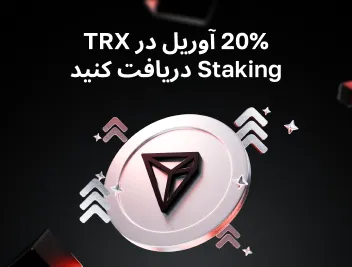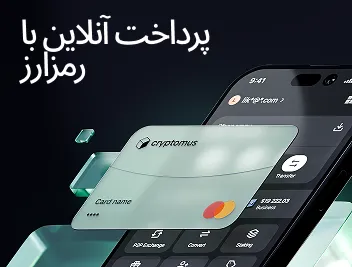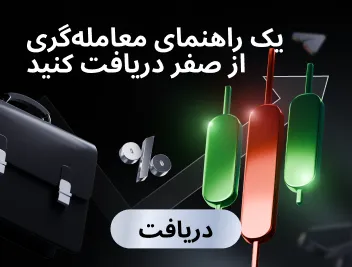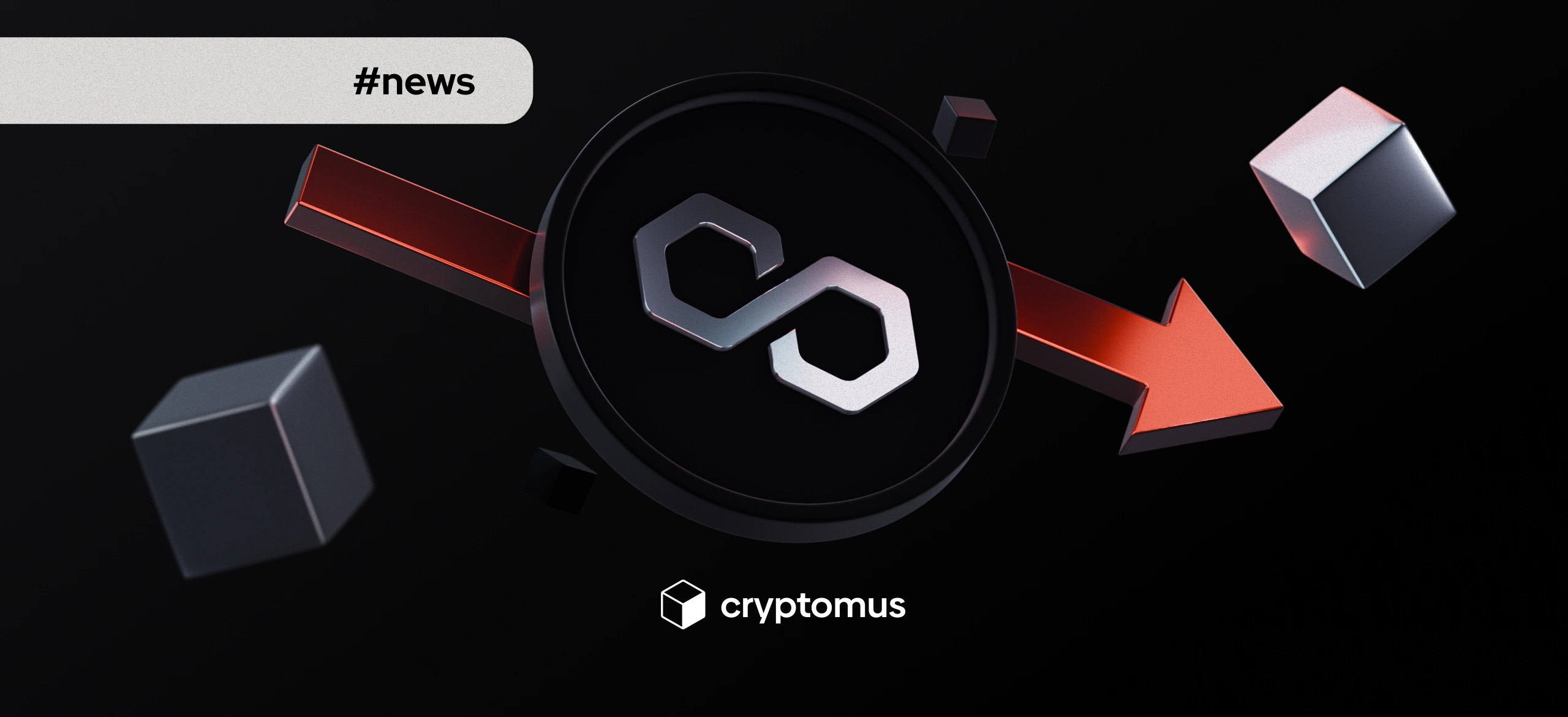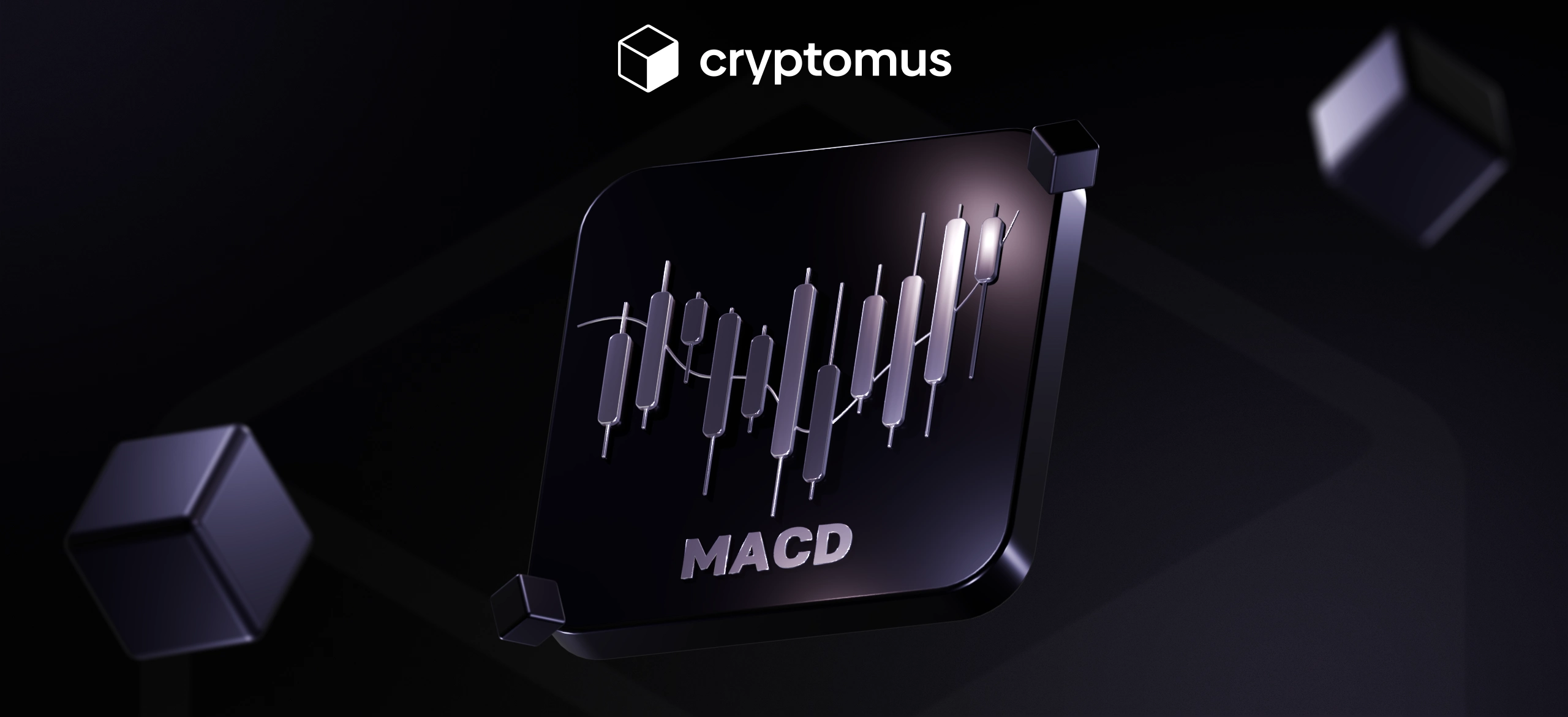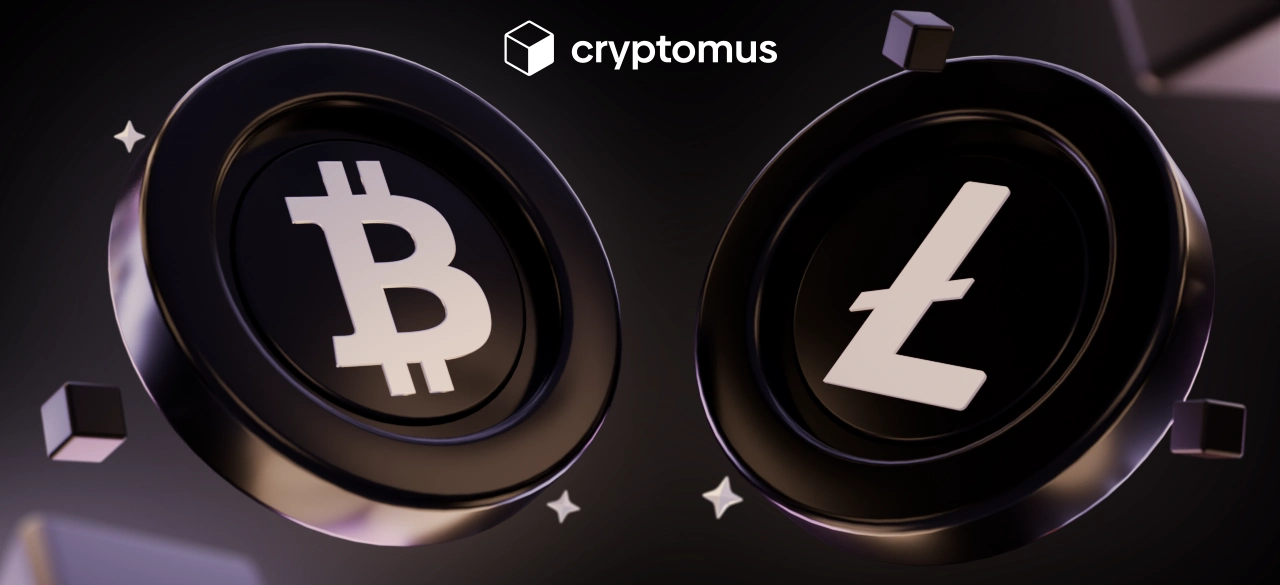
بیت کوین (BTC) در مقابل لایت کوین (LTC)
فهرست مطالب
دنیای ارزهای دیجیتال بسیار بزرگ است و دو تا از قابل توجه ترین سکه های موجود در بازار بیت کوین (BTC) و لایت کوین (LTC) هستند. هر دو طرفدار قابل توجهی دارند و مزایای متفاوتی را برای کاربران خود فراهم می کنند. هدف این مقاله مقایسه کامل این ارزهای دیجیتال است تا به شما در درک تفاوتهای آنها و تعیین اینکه کدام سرمایهگذاری برای شما بهتر است کمک کند.
ادامه مطلب:
بیت کوین (BTC) چیست؟
بیت کوین اولین ارز دیجیتال است که در سال 2009 توسط یک نهاد ناشناس به نام ساتوشی ناکاموتو معرفی شد. این سیستم از یک سیستم دفتر کل غیرمتمرکز به نام بلاک چین برای مدیریت و ثبت تراکنش ها بدون نیاز به یک مقام مرکزی یا واسطه مانند بانک یا دولت استفاده می کند.
لایت کوین (LTC) چیست؟
لایت کوین، که اغلب به عنوان نقره به طلای بیت کوین شناخته می شود، توسط چارلی لی، مهندس سابق گوگل، در سال 2011 ایجاد شد. این به عنوان یک جایگزین کاربردی تر و کارآمدتر برای بیت کوین برای تراکنش های روزمره عمل می کند.
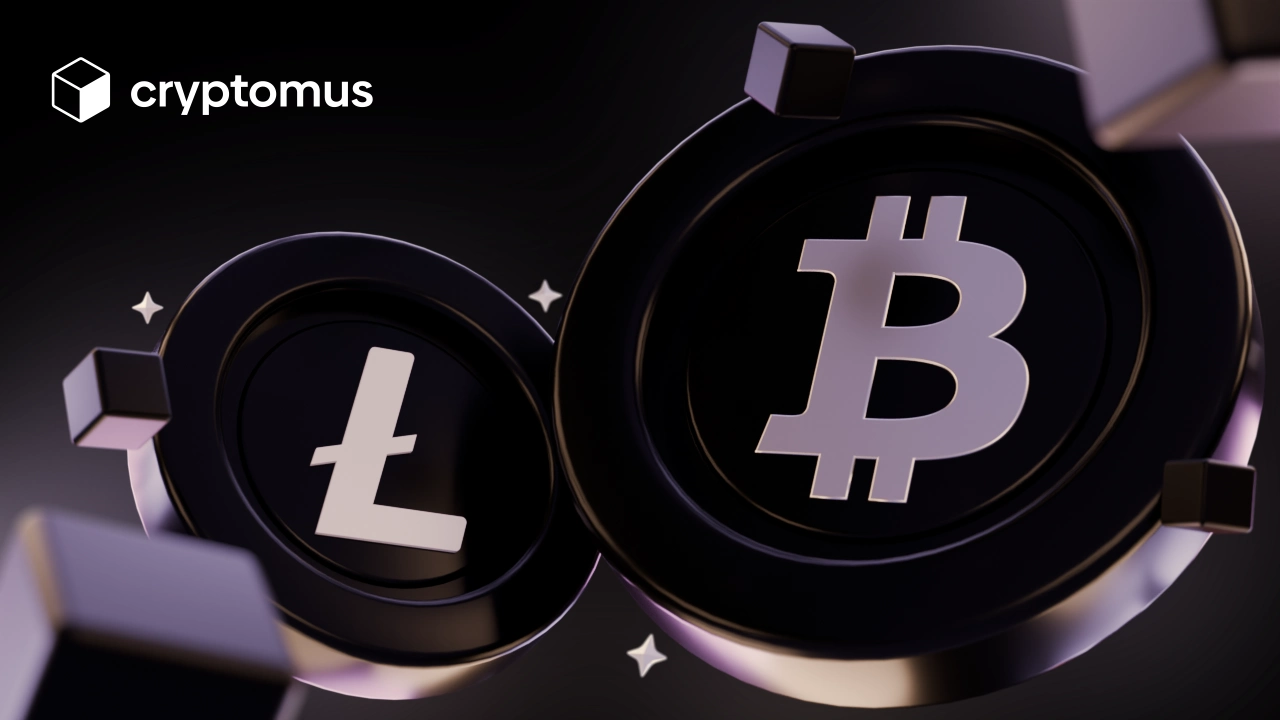
بیت کوین در مقابل. لایت کوین: تفاوت های کلیدی
لایت کوین (LTC) و بیت کوین (BTC) هر دو ارزهای دیجیتالی هستند که شباهت های زیادی مانند فرصت های استخراج، الگوریتم های PoW و اهداف استفاده دارند. اما آنها یکسان نیستند. در اینجا عوامل کلیدی وجود دارد که به شما کمک می کند تا تفاوت آنها را روشن کنید:
1. سرعت تراکنش
سرعت تراکنش عاملی حیاتی است که بیت کوین و لایت کوین را متمایز می کند.
بیت کوین: میانگین زمان تایید تراکنش بیت کوین حدود 10 دقیقه است. با این حال، این زمان بسته به ازدحام شبکه و کارمزد تراکنش هایی که کاربران مایل به پرداخت هستند، می تواند به طور قابل توجهی متفاوت باشد. در دورههای تقاضای بالا، زمان تأیید میتواند بیش از 10 دقیقه باشد.
چرا بیت کوین کندتر است؟ سرعت تراکنش کمتر بیت کوین در درجه اول به دلیل اندازه بلوک آن و مکانیسم اثبات کار است. اندازه هر بلوک در بلاک چین بیت کوین به 1 مگابایت محدود می شود و بلاک ها تقریباً هر 10 دقیقه ایجاد می شوند. این تعداد تراکنش هایی را که می توان در یک بازه زمانی معین پردازش کرد، محدود می کند.
لایت کوین: تراکنش های لایت کوین تقریباً هر 2.5 دقیقه تأیید می شود که چهار برابر سریع تر از بیت کوین است. این سرعت تراکنش زمان تأیید سریعتری را میدهد و لایت کوین را برای استفاده روزمره کاربردیتر میکند.
چرا لایت کوین سریعتر است؟ سرعت تراکنش سریعتر لایت کوین از طریق زمان بلاک کمتر 2.5 دقیقه و محدودیت اندازه بلوک بزرگتر به دست می آید. این اجازه می دهد تا تراکنش های بیشتری در هر بلوک گنجانده شود و با سرعت بیشتری پردازش شود، و زمان انتظار کاربران برای تایید تراکنش هایشان را کاهش می دهد.
2. کارمزد تراکنش
کارمزد تراکنش ها یکی دیگر از تفاوت های مهم بین بیت کوین و لایت کوین است.
بیت کوین: کارمزد تراکنش بیت کوین می تواند نسبتاً بالا باشد، به خصوص در دوره های شلوغی شبکه. کاربرانی که میخواهند تراکنشهایشان سریع پردازش شود، اغلب باید هزینههای بیشتری بپردازند. به طور متوسط، کارمزد تراکنش های بیت کوین بسته به تقاضای شبکه می تواند از چند سنت تا چند دلار متغیر باشد.
چرا کارمزدهای بیت کوین بالاتر است؟ اندازه محدود بلاک و رقابت زیاد برای فضای بلاک در زمان اوج مصرف منجر به کارمزدهای بالاتر می شود. ماینرها تراکنش هایی با هزینه کمیسیون بالاتر را در اولویت قرار می دهند، بنابراین کاربرانی که می خواهند تراکنش هایشان سریع پردازش شود باید بیشتر بپردازند.
**لایت کوین: ** لایت کوین به طور کلی کارمزد تراکنش های بسیار کمتری را در مقایسه با بیت کوین ارائه می دهد. کارمزد تراکنشهای لایتکوین معمولاً فقط چند سنت است که آن را برای تراکنشهای کوچک و پرداختهای خرد مقرون به صرفهتر میکند.
چرا کارمزدهای لایت کوین کمتر است؟ زمان تولید سریعتر بلاک لایت کوین و اندازه بلاک بزرگتر امکان پردازش تراکنش های بیشتری را در هر بلوک می دهد. این امر رقابت را برای فضای بلوک کاهش می دهد و هزینه ها را حتی در زمان تقاضای بالا پایین نگه می دارد.
3. الگوریتم های استخراج
بیت کوین و لایت کوین از الگوریتم های استخراج مختلفی استفاده می کنند که بر فرآیندهای استخراج و نیازهای سخت افزاری آنها تأثیر می گذارد.
بیت کوین: بیت کوین از الگوریتم SHA-256 برای استخراج استفاده می کند که به سخت افزار تخصصی موسوم به ASIC (مدارهای مجتمع ویژه برنامه) نیاز دارد. این ASIC ها به طور خاص برای استخراج طراحی شده اند و قدرت محاسباتی بالایی را ارائه می دهند، اما گران هستند و مقدار قابل توجهی برق مصرف می کنند.
Litecoin: Litecoin از الگوریتم Scrypt استفاده می کند که حافظه فشرده تر است و در ابتدا به گونه ای طراحی شده بود که در برابر ASIC مقاوم باشد. این امکان را برای یک فرآیند استخراج غیرمتمرکز فراهم میکند، زیرا Scrypt میتواند با استفاده از سختافزار کمتر تخصصی، مانند GPU (واحد پردازش گرافیکی) و CPU (واحد پردازش مرکزی) استخراج شود.
4. محدودیت های عرضه
حداکثر عرضه هر ارز دیجیتال تفاوت قابل توجه دیگری است.
بیت کوین: بیت کوین دارای حداکثر عرضه 21 میلیون سکه است که انتظار می رود در حدود سال 2140 به آن برسد. این محدودیت عرضه ثابت بخش مهمی از ارزش بیت کوین است، زیرا کمبود را تضمین می کند و می تواند منجر به افزایش تقاضا شود. و افزایش قیمت در طول زمان.
لایت کوین: لایت کوین حداکثر 84 میلیون سکه عرضه می کند که چهار برابر بیشتر از حد عرضه بیت کوین است. این حد عرضه بالاتر می تواند بر قیمت و کمیاب شدن سکه در طول زمان تأثیر بگذارد. با این حال، افزایش در دسترس بودن لایت کوین در مقایسه با بیت کوین نیز می تواند پتانسیل آن را برای افزایش قیمت در دراز مدت محدود کند.
بیت کوین در مقابل. لایت کوین: خرید کدام بهتر است؟
تعیین اینکه آیا بیت کوین یا لایت کوین خرید بهتری است به اهداف سرمایه گذاری و تحمل ریسک شما بستگی دارد.
- بیت کوین: شبکه مستقرتر، نقدینگی بالاتر و پذیرش گسترده تر به عنوان ذخیره ارزش را ارائه می دهد. سرمایه گذاری مطمئن تری محسوب می شود اما ممکن است پتانسیل کمتری برای رشد سریع داشته باشد.
- Litecoin: سرعت تراکنش های سریع تر و کارمزد کمتری را ارائه می دهد و آن را برای استفاده روزمره مناسب تر می کند. این پتانسیل رشد بالاتری دارد اما به دلیل ارزش بازار کمتر و پذیرش گسترده کمتر، ریسک بیشتری را به همراه دارد.
بیت کوین در مقابل. لایت کوین: از Сases استفاده کنید
بیت کوین و لایت کوین، در حالی که از بسیاری جهات مشابه هستند، به دلیل ویژگی های منحصر به فردشان، موارد استفاده متفاوتی را ارائه می دهند. درک نحوه استفاده از هر ارز دیجیتال می تواند به سرمایه گذاران و کاربران کمک کند تا تصمیم بگیرند کدام یک با نیازها و اهداف آنها مطابقت دارد. در زیر، موارد استفاده اولیه بیت کوین و لایت کوین را بررسی می کنیم.
بیت کوین
- فروشگاه ارزش: بیت کوین اغلب به عنوان "طلای دیجیتال" شناخته می شود، زیرا توانایی آن برای عمل به عنوان یک ذخیره کننده ارزش است. سرمایه گذاران از بیت کوین به عنوان پوششی در برابر تورم و عدم اطمینان اقتصادی استفاده می کنند، مشابه نحوه استفاده از طلا در طول تاریخ.
- تراکنش های دیجیتال: اگرچه سرعت تراکنش بیت کوین در مقایسه با سایر ارزهای رمزنگاری شده کندتر است و کارمزدها بالاتر است، اما همچنان یک انتخاب محبوب برای خریدها و پرداخت های آنلاین است، به ویژه برای تراکنش های بزرگ که امنیت و قابلیت اطمینان در آنها اهمیت بالایی دارد.
- پرداخت های بین المللی: بیت کوین تراکنش های برون مرزی را تسهیل می کند و به کاربران امکان می دهد بدون نیاز به واسطه هایی مانند بانک ها در سطح جهانی پول ارسال کنند. این امر آن را به گزینه ای جذاب برای حواله های بین المللی و نقل و انتقالات با ارزش بالا تبدیل می کند.
- دارایی سرمایه گذاری: بیت کوین یک دارایی سرمایه گذاری شناخته شده و پذیرفته شده است. در پرتفوی سرمایه گذاران فردی و نهادی که به دنبال قرار گرفتن در معرض بازار ارزهای دیجیتال هستند، گنجانده شده است. پتانسیل بازدهی بالا و جایگاه آن به عنوان بزرگترین ارز دیجیتال بر اساس ارزش بازار، آن را به یک انتخاب سرمایه گذاری قانع کننده تبدیل می کند.
لایت کوین
- تراکنش های روزانه: سرعت تراکنش سریع تر لایت کوین و کارمزدهای کمتر آن را برای تراکنش های روزمره مانند خرید کالاها و خدمات یا پرداخت هزینه های غذا در رستوران ها ایده آل می کند. زمان پردازش سریع آن یک تجربه پرداخت روان و کارآمد را هم برای خریداران و هم برای فروشندگان تضمین می کند.
- پرداخت های خرد: به دلیل کارمزدهای پایین تراکنش، لایت کوین به ویژه برای پرداخت های خرد، مانند انعام دادن به سازندگان محتوا، اهدای کمک های مالی کوچک، یا خرید کالاهای دیجیتال ارزان قیمت مناسب است. این ویژگی لایت کوین را به گزینه ای کاربردی برای کاربرانی تبدیل می کند که نیاز به ارسال مکرر مقدار کمی پول دارند.
- پردازش پرداخت: لایت کوین به طور فزاینده ای توسط بازرگانان و پردازشگرهای پرداخت به عنوان یک جایگزین قابل اعتماد و مقرون به صرفه برای روش های پرداخت سنتی مورد استفاده قرار می گیرد. سازگاری آن با سیستمهای پرداخت موجود و سهولت ادغام، آن را به یک انتخاب محبوب برای کسبوکارهایی تبدیل میکند که به دنبال پذیرش پرداختهای ارز دیجیتال هستند.
بیت کوین در مقابل. لایت کوین: مقایسه سر به سر
هنگام ارزیابی تفاوتهای بین بیتکوین و لایتکوین، ضروری است که آنها را در بین پارامترهای مختلف مقایسه کنیم تا نقاط قوت و ضعف مربوطه را درک کنیم. این مقایسه جانبی با هدف ارائه درک واضح تری از نحوه قرارگیری این دو ارز دیجیتال در برابر یکدیگر در عوامل حیاتی برای تصمیم گیری است.
| فاکتور | بیت کوین | لایت کوین | |
|---|---|---|---|
| سال راه اندازی ** | بیت کوین2009 | لایت کوین2011 ** | |
| سرعت تراکنش | بیت کوین~ 10 دقیقه | لایت کوین~2.5 دقیقه | |
| کارمزد معامله | بیت کوینبالاتر (با تقاضای شبکه متفاوت است) | لایت کوینکمتر (معمولا چند سنت) | |
| الگوریتم استخراج | بیت کوینSHA-256 | لایت کوینScrypt | |
| حداکثر عرضه | بیت کوین21 میلیون | لایت کوین84 میلیون | |
| بازار سرمایه | بیت کوینبالاترین در بین تمام ارزهای دیجیتال | لایت کوینپایین تر از بیت کوین | |
| استفاده اولیه | بیت کوینفروشگاه ارزش، سرمایه گذاری | لایت کوینتراکنش های روزمره، پرداخت های خرد | |
| فرزندخواندگی | بیت کوینبه طور گسترده پذیرفته شده و یکپارچه | لایت کوینپذیرش و ادغام رو به رشد | |
| امنیت شبکه | بیت کوینبالا، به دلیل هش ریت و شبکه | لایت کوینامن، اما با نرخ هش کمتر |
بهطور خلاصه، بیتکوین برای سرمایهگذاران بلندمدت و کسانی که بهدنبال یک ذخیره ارزش قابل اعتماد هستند، مناسبتر است، در حالی که لایتکوین برای استفاده روزانه و تراکنشهای کوچکتر و مکرر عملیتر است.
بیت کوین و لایت کوین دو ارز دیجیتال برجسته در بازار هستند که هر کدام ویژگی ها و مزایای منحصر به فرد خود را دارند. امیدواریم این مقایسه برای شما مفید و آموزنده بوده باشد. اگر سوال یا نظری دارید، در صورت تمایل آنها را با ما در میان بگذارید!
سفر رمزنگاری خود را ساده کنید
آیا می خواهید ارزهای رمزنگاری شده را ذخیره، ارسال، پذیرش، سهام یا معامله کنید؟ با Cryptomus همه چیز امکان پذیر است - ثبت نام کنید و وجوه ارز دیجیتال خود را با ابزارهای مفید ما مدیریت کنید.
شروع کنید


